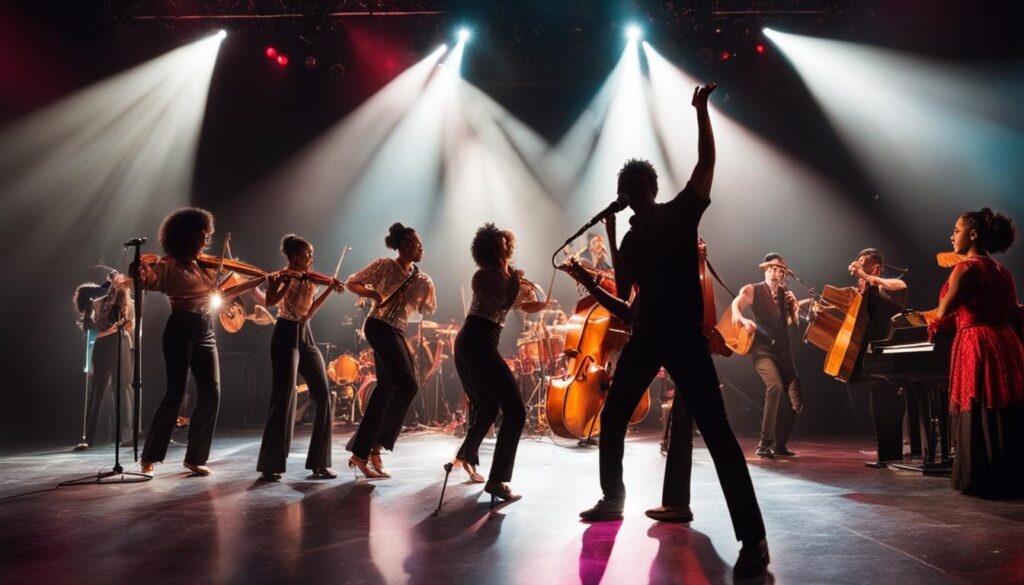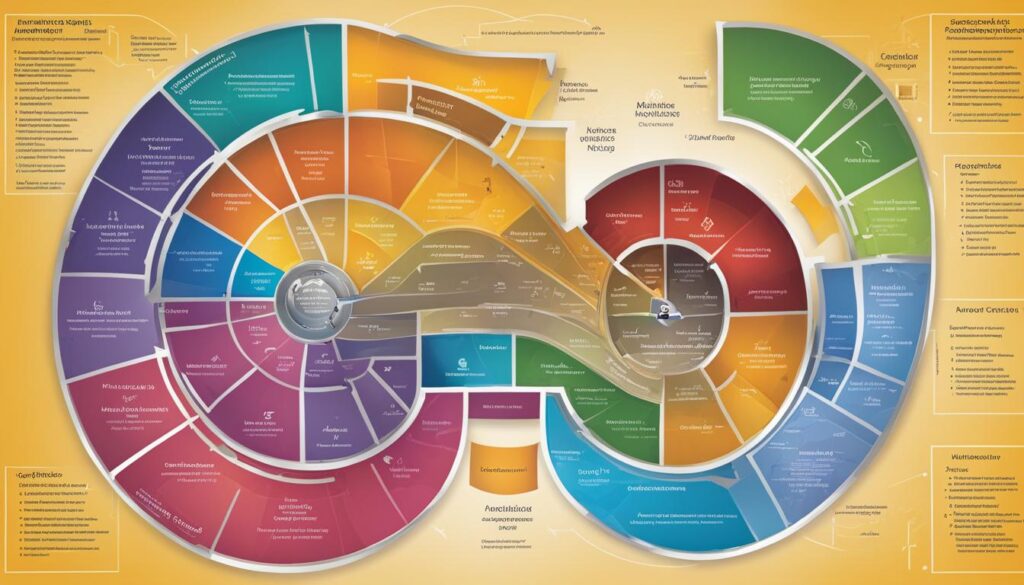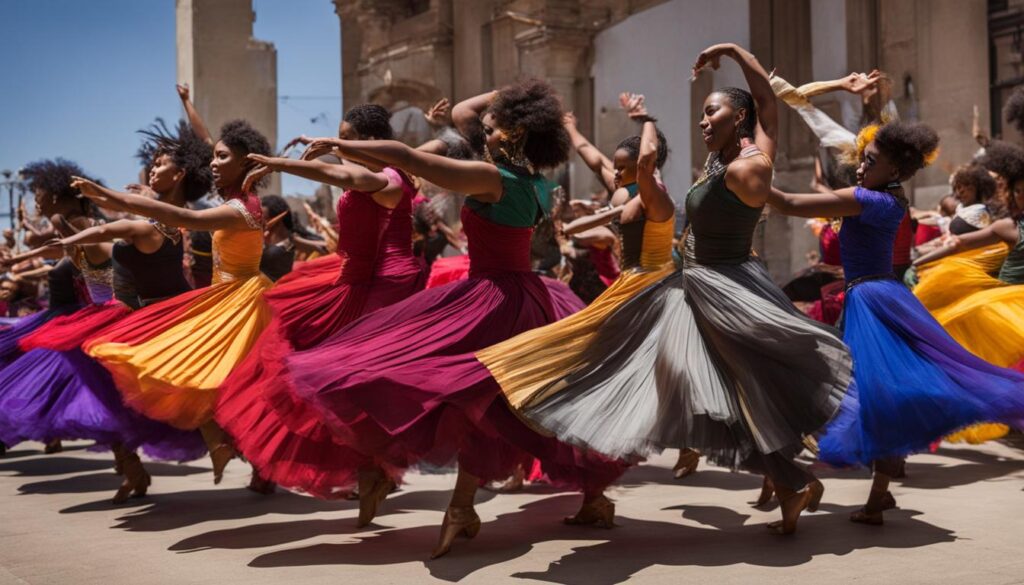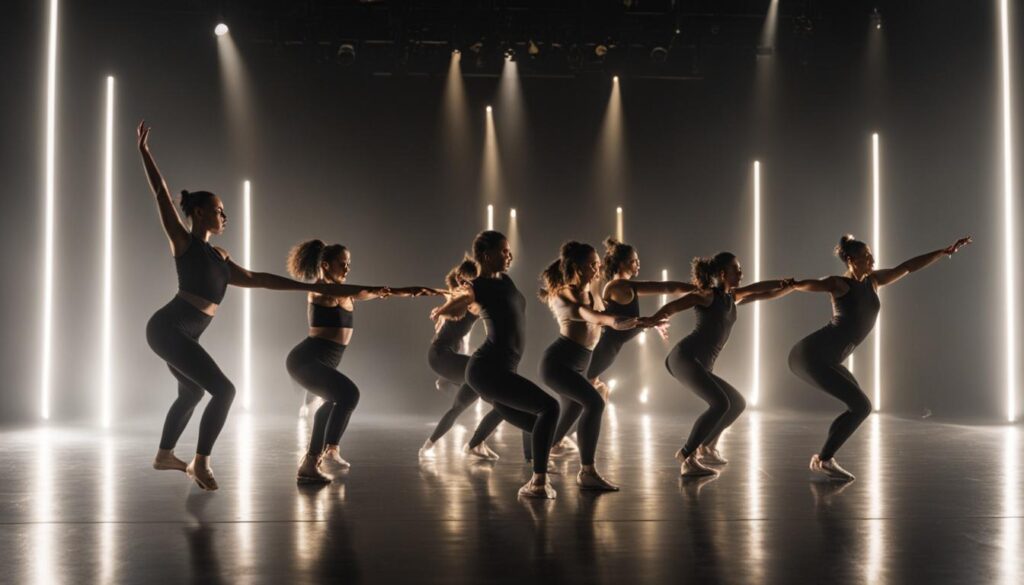The major of performing arts is a field of study that encompasses various forms of artistic expression, such as music, dance, theater, and more. It is an interdisciplinary program that combines theoretical knowledge with practical skills, allowing students to explore their creative talents and develop their artistic abilities. The major of performing arts provides students with a comprehensive understanding of the history, techniques, and theories behind different art forms, as well as the opportunity to specialize in a specific area. Graduates with a performing arts major can pursue careers in the entertainment industry, theater production, education, and more.
Key Takeaways:
- A major in performing arts includes studies in music, dance, theater, and more.
- It combines theoretical knowledge with practical skills to develop artistic abilities.
- Specializations within performing arts offer opportunities for career advancement.
- Performing arts education provides networking opportunities and access to industry professionals.
- Graduates with a performing arts major have diverse career options available to them.
Exploring Performing Arts Education and Programs
In the world of performing arts, education plays a crucial role in nurturing and developing aspiring artists. Performing arts education offers a wide range of programs and courses designed to equip students with the necessary skills and knowledge to excel in the industry. Whether they have a passion for music, dance, theater, or film, students can choose from various specializations within the performing arts.
These programs often include practical training, theory-based courses, and performance opportunities, giving students a well-rounded experience. For example, a student specializing in musical theater may take classes in acting, singing, and dancing, while a student focused on music performance may focus on instrumental or vocal training. These specialized programs cater to each student’s unique talents and interests, allowing them to develop their skills and expertise in their chosen field.
Performing arts programs are available at both undergraduate and graduate levels, with many colleges and universities offering comprehensive curricula and state-of-the-art facilities to support student learning and artistic development. Whether students choose a conservatory-style program or a more interdisciplinary approach, they can expect to receive rigorous training and mentorship from experienced faculty members who are industry professionals themselves.
| Specialization | Program Highlights |
|---|---|
| Acting | Intensive scene study, improvisation techniques, and audition preparation |
| Dance | Training in various dance styles, choreography, and performance opportunities |
| Theater | Playwriting, directing, and production design |
| Music | Instrumental or vocal training, music theory, and ensemble performance |
Performing arts education provides students with not only the technical skills but also the artistic and creative mindset required to thrive in the industry. It fosters personal growth, self-expression, and an appreciation for various art forms. Through workshops, rehearsals, and performances, students gain practical experience and develop a strong work ethic, teamwork, and discipline.
Overall, performing arts education offers a unique and exciting path for individuals who have a passion for creativity and artistic expression. It provides a supportive and nurturing environment for students to explore their talents, refine their skills, and pursue their dreams in the performing arts industry.
The Benefits of a Performing Arts Degree
Pursuing a degree in performing arts can provide numerous benefits for aspiring artists. Firstly, a performing arts degree offers a structured and comprehensive education that covers a broad range of artistic disciplines, allowing students to gain a well-rounded understanding of the performing arts. This diverse knowledge base equips them with the versatility to explore different art forms and adapt to the evolving needs of the industry.
Additionally, a degree in performing arts provides networking opportunities and access to industry professionals, which can be invaluable for career advancement. Through internships, workshops, and collaborations with established artists, students can establish connections that may lead to future employment or mentorship. These connections can open doors to auditions, performances, and professional development opportunities that are essential for success in the competitive world of the performing arts.
“A degree in performing arts not only hones your skills but also nurtures your creativity and passion for the arts. It provides a solid foundation for a career in the performing arts industry and prepares you for the challenges and demands of this field.”
Graduates with a performing arts degree have a wide range of career options available to them. They can pursue careers as performers on stage or screen, working behind the scenes in production and direction, or even teaching and coaching aspiring artists. The skills and knowledge acquired during their education make them adaptable to various roles in the entertainment industry, enabling them to explore different avenues and find their niche.
| Career Paths | Job Opportunities |
|---|---|
| Theater and Film | Actor, Director, Stage Manager, Set Designer |
| Music | Musician, Singer, Composer, Music Teacher |
| Dance | Dancer, Choreographer, Dance Instructor |
| Education | Performing Arts Teacher, Arts Administrator |
In conclusion, a performing arts degree not only provides a comprehensive education but also opens up a world of opportunities in the performing arts industry. It equips students with the skills, knowledge, and connections necessary to pursue a successful career in their chosen field. Whether their passion lies in theater, music, dance, or any other art form, a performing arts degree can be a stepping stone towards a fulfilling and rewarding artistic journey.


The Structure of a Performing Arts Curriculum
When it comes to pursuing a major in performing arts, understanding the structure of the curriculum is essential. While the specifics can vary depending on the institution and program, most performing arts curricula share some common elements. These curricula are designed to provide students with a well-rounded education that combines both theoretical understanding and practical training in their chosen art form.
Typically, a performing arts curriculum includes a balance of theoretical courses, practical training, and performance-based projects. Students can expect to take classes in areas such as acting, voice and diction, dance technique, music theory, stagecraft, and more. These courses aim to equip students with a comprehensive understanding of their chosen art form and its various components.
In addition to the core courses, performing arts programs often offer workshops, rehearsals, and performance opportunities. These practical experiences allow students to apply their skills, gain hands-on experience, and showcase their talents. They provide a valuable opportunity for students to grow as performers and artists, while also building confidence and developing their own unique artistic voice.


| Course | Description |
|---|---|
| Acting | A course that focuses on building acting skills, character development, and stage presence. |
| Dance Technique | Classes that cover various dance styles, techniques, and choreography. |
| Music Theory | A course that explores the fundamentals of music theory, including notation, harmony, and composition. |
| Stagecraft | Classes that delve into the technical aspects of theater production, including set design, lighting, and sound. |
| Voice and Diction | A course that focuses on vocal techniques, projection, and clear diction for performers. |
Overall, the structure of a performing arts curriculum is designed to provide students with a comprehensive education that prepares them for a career in the performing arts industry. By combining theoretical knowledge with practical training, students develop a solid foundation in their chosen art form and the skills necessary to succeed as performers, directors, educators, and more.
Specializations within the Performing Arts
Within the field of performing arts, students have the opportunity to specialize in various areas that align with their interests and talents. These specializations allow individuals to focus on developing their skills and expertise in a specific aspect of performing arts, opening up unique career pathways.
One popular specialization is acting, where students learn the art of bringing characters to life through expressive performances. Acting programs often include courses in improvisation, scene study, and voice technique, helping students develop their craft and prepare for auditions and live performances.
Another exciting specialization is musical theater, which combines the disciplines of singing, acting, and dancing. Students in musical theater programs learn to seamlessly integrate these elements while honing their skills in all three areas. This specialization prepares individuals for careers in Broadway productions, touring shows, and other musical theater performances.
Dance is another specialization within the performing arts, with options to focus on various styles such as ballet, contemporary, jazz, or hip-hop. Dance programs provide rigorous training in technique, choreography, and performance, preparing students for careers as professional dancers or dance instructors.
Table: Specializations within the Performing Arts
| Specialization | Description |
|---|---|
| Acting | Focuses on bringing characters to life through expressive performances, includes courses in improvisation and scene study. |
| Musical Theater | Combines singing, acting, and dancing, prepares students for careers in Broadway productions and other musical theater performances. |
| Dance | Offers specializations in various styles such as ballet, contemporary, jazz, or hip-hop, prepares students for careers as professional dancers or dance instructors. |
Music performance is yet another specialization within the performing arts, allowing individuals to focus on mastering an instrument or vocal technique. Students in music performance programs receive intensive training in their chosen area, often culminating in recitals or performances to showcase their skills.
Directing and playwriting are also popular specializations that focus on the behind-the-scenes aspects of the performing arts. These programs equip students with the knowledge and skills necessary to bring scripts to life and guide performers to deliver powerful and impactful performances.
Overall, the availability of various specializations within the performing arts allows students to pursue their passion while developing expertise in their chosen area. Whether it’s acting, musical theater, dance, music performance, directing, or playwriting, these specializations provide individuals with the necessary tools and knowledge to thrive in the performing arts industry.
Conclusion
The major of performing arts offers students a unique opportunity to explore their creativity, develop their artistic abilities, and pursue a career in the performing arts industry. With a comprehensive curriculum, specialized programs, and access to state-of-the-art facilities, performing arts education provides aspiring artists with the necessary skills and knowledge to succeed in their chosen field.
Whether pursuing a degree in acting, dance, music, or theater, students can expect to receive a well-rounded education that combines practical training with theoretical understanding. The major of performing arts equips students with the technical skills and artistic vision required to excel in their chosen discipline.
Graduates with a performing arts major have a wide range of career opportunities available to them, making it an exciting and fulfilling field of study. They can pursue careers as performers, producers, directors, teachers, or arts administrators in various industries, such as theater, film, television, and education.
Overall, the major of performing arts provides a platform for students to unleash their creativity, express themselves through various art forms, and make a meaningful impact in the world of performing arts.
FAQ
What is the major of performing arts?
The major of performing arts is a field of study that encompasses various forms of artistic expression, such as music, dance, theater, and more.
What does performing arts education entail?
Performing arts education offers a wide range of programs and courses designed to equip students with the necessary skills and knowledge to excel in the performing arts industry.
What are the benefits of pursuing a degree in performing arts?
Pursuing a degree in performing arts can provide numerous benefits, including a comprehensive education in various artistic disciplines, networking opportunities, and a wide range of career options.
What is the structure of a performing arts curriculum?
The structure of a performing arts curriculum varies but typically includes a combination of practical training, theoretical courses, and performance-based projects.
Can students specialize in a specific area within the performing arts?
Yes, students have the option to specialize in areas such as acting, musical theater, dance, music performance, directing, and playwriting.

